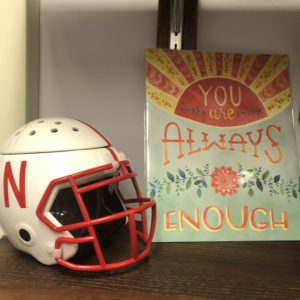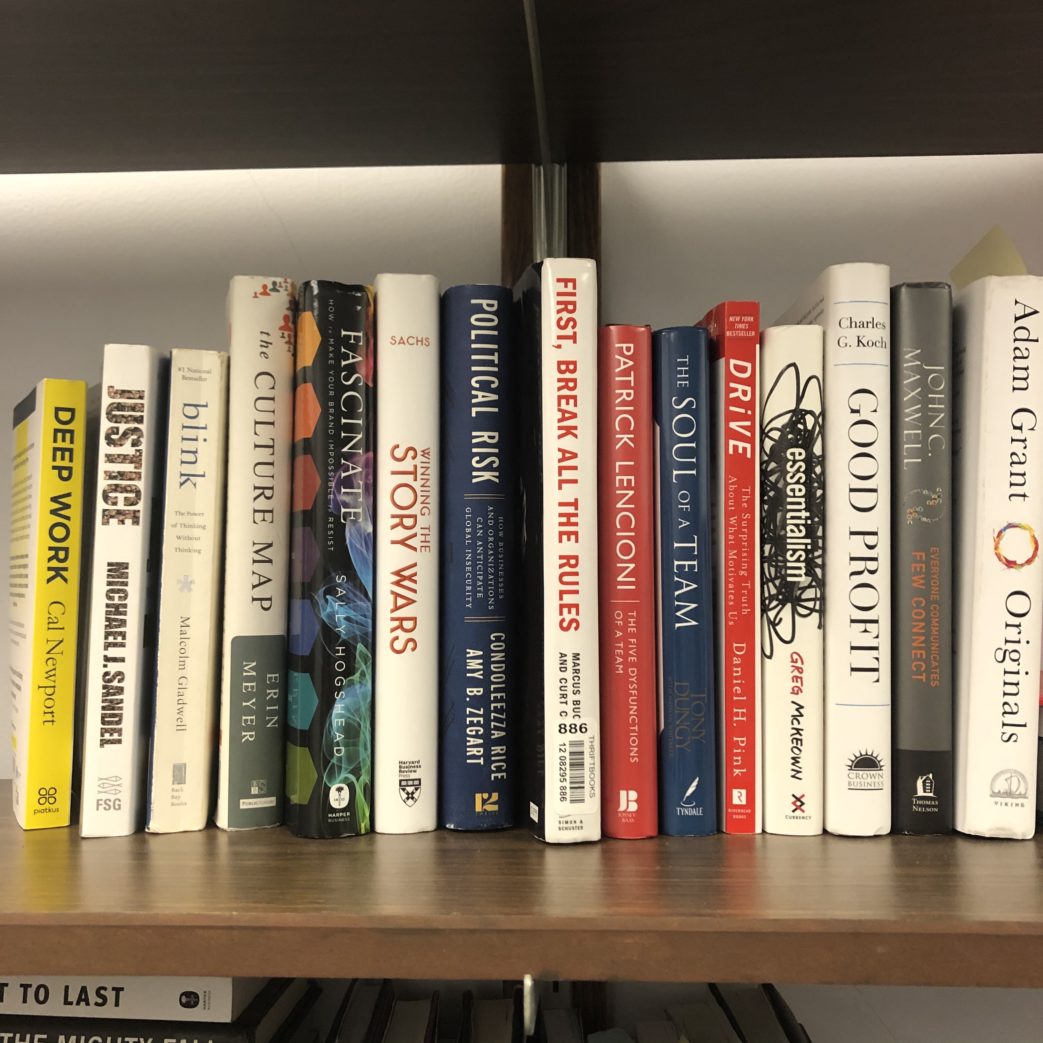Here is my gift to business students the world over who aren’t quite sure how their classes are going to go. It’s also a gift to business pros who want to read a book that will build their skills while working from home. It’s my hit list of favorite business books, the ones I recommend to everyone. Literally.
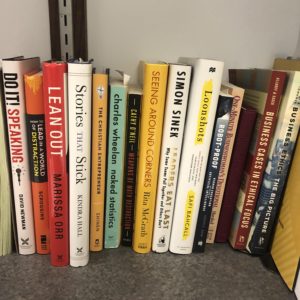
I love to read. All the time. If I’m not reading, I’m listening to books. As a law and ethics professor at a Big 10 university, I’m always recommending books to my students and creating opportunities for them to read some of the books that professors tell them they should read someday.
This morning as I left my office for at least the next few days, I took a few photos of some of the business, managment, and leadership books I’ve collected. Many of these I’ve read. Others are on my TBR pile. As many of us shift to working from home, I thought I’d take this post to share some of my favorites with you. I’ve got a board with links to many of them here.
Here are a few I can’t recommend highly enough, and that my students have found worth the read, too:
- Radical Candor: Kim Scott: In a very Cara moment, I was teaching a mock class for masters students when I realized the book I was recommending was written by the woman who was the focus of the Harvard Business Case I was teaching (Keeping Google Googley). Radical Candor has revolutioned my thinking in many ways when it comes to people. It also builds on some of the themes from Good to Great related to getting the right people on the bus.
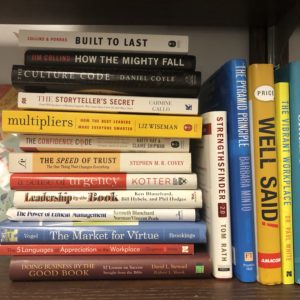 Good to Great: Jim Collins; it’s a seminal books and there’s a reason. My favorite chapter is the one on Level 5 Leaders (think transformational servant leaders), but each chapter contains solid gold: Get the Right People on the Bus; The Hedgehog Concept: (Simplicity within the Three Circles); A Culture of Discipline; The Flywheel and the Doom Loop. “Some of the key concepts discerned in the study,” comments Jim Collins, “fly in the face of our modern business culture and will, quite frankly, upset some people.”
Good to Great: Jim Collins; it’s a seminal books and there’s a reason. My favorite chapter is the one on Level 5 Leaders (think transformational servant leaders), but each chapter contains solid gold: Get the Right People on the Bus; The Hedgehog Concept: (Simplicity within the Three Circles); A Culture of Discipline; The Flywheel and the Doom Loop. “Some of the key concepts discerned in the study,” comments Jim Collins, “fly in the face of our modern business culture and will, quite frankly, upset some people.”- How the Mighty Fall: Jim Collins Decline can be avoided. Decline can be detected. Decline can be reversed. Amidst the desolate landscape of fallen great companies, Jim Collins began to wonder: How do the mighty fall? Can decline be detected early and avoided? How far can a company fall before the path toward doom becomes inevitable and unshakable? How can companies reverse course? In How the Mighty Fall, Collins confronts these questions, offering leaders the well-founded hope that they can learn how to stave off decline and, if they find themselves falling, reverse their course.
- The Speed of Trust: Stephen Covey: Why trust? The simple, often overlooked fact is this: work gets done with and through people. The Speed of Trust offers an unprecedented and eminently practical look at exactly how trust functions in every transaction and every relationship—from the most personal to the broadest, most indirect interaction. It specifically demonstrates how to establish trust intentionally so that you and your organization can forego the time-killing, bureaucratic check-and-balance processes that is so often deployed in lieu of actual trust.
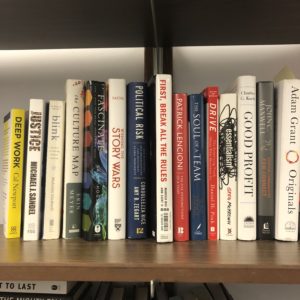 The Culture Map: Erin Meyer. Eric and I discovered this book while in Turkey over spring break 2019. A cross-cultural team was using it as a springboard for discussing team dynamics, and it was fascinating to eavesdrop. Then we both inhaled the book. Highly recommend.
The Culture Map: Erin Meyer. Eric and I discovered this book while in Turkey over spring break 2019. A cross-cultural team was using it as a springboard for discussing team dynamics, and it was fascinating to eavesdrop. Then we both inhaled the book. Highly recommend.- Good Profit: Charles Koch; What is good profit? Good profit results when a company creates value for customers in a way that helps them improve their lives. Good profit is the result of innovations that customers freely vote for with their own dollars; it’s the result of business decisions that create long term value for everyone–customers, employees, shareholders, and society.
- Extraordinary Circumstances: Cynthia Cooper (WorldCom Whistleblower) A book the really humanizes the WorldCom scandals and the cost of whistle-blowing. A must read book for future CPAs and those who want to understand how many of the scandals of the late 1990s/early 2000s could happen.
- Multipliers: Liz Wiseman; Wow, just wow. In analyzing data from more than 150 leaders, Wiseman has identified five disciplines that distinguish Multipliers from Diminishers. These five disciplines are not based on innate talent; indeed, they are skills and practices that everyone can learn to use. As a professor and employee I want to multiply those around me, and this book gave me great insight.
- Essentialism: Greg Mckeown; The Way of the Essentialist isn’t about getting more done in less time. It’s about getting only the right things. I personally struggle to focus in on the essentials, so it’s a book I return to and need to read annually.
What books would you add to this list? I’m always looking for a good book to expand my understanding.
These last two photos are just for fun. A bit of the personality from my office.

